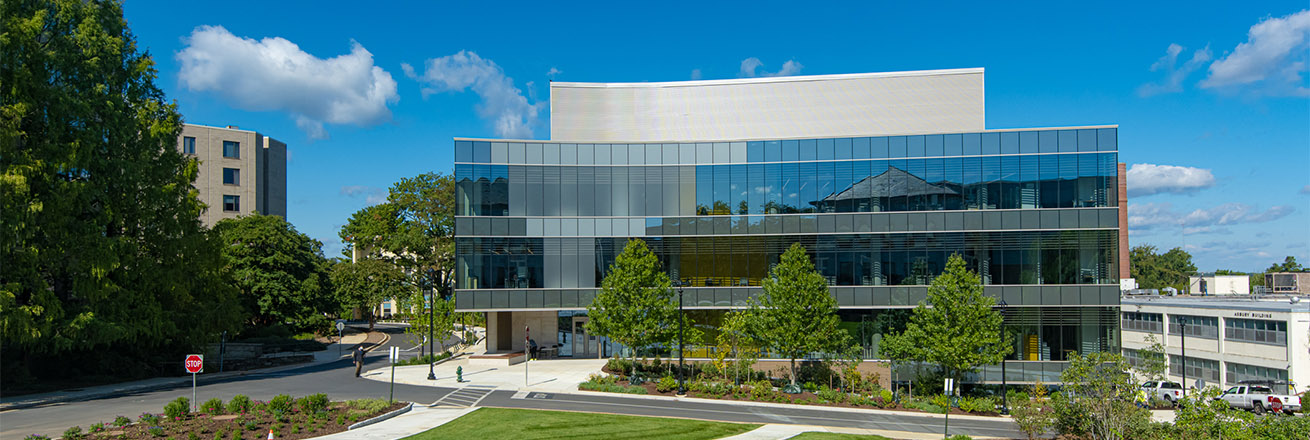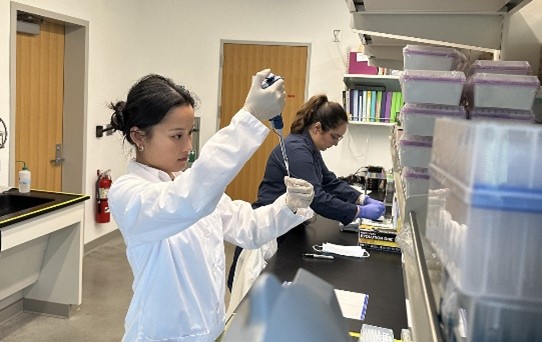You are here: American University Centers Center for Neuroscience and Behavior

Center for Neuroscience and Behavior

Contact Us
Contact:
Rachel Crupi
Coordinator

AU's Center for Neuroscience and Behavior, established in 2012, provides a unique interdisciplinary research and training environment that promotes excellence in the study of brain function and its manifestation in behavior.
Our Vision
The center strives to support neuroscience research efforts and promote collaborative interactions. As an externally-funded and self-sustaining center, our work integrates psychology, biology, neuroanatomy, and physiology with chemistry, physics and mathematics to advance understanding of the cognitive, emotional, sensory, and regulatory functions underlying the behavior of both humans and animals. The center brings together experts from these and other disciplines and provides core research facilities for neuroscience research.
Related Degrees
Research and Training
The Center for Neuroscience and Behavior supports the training goals of faculty and students in a number of undergraduate and graduate programs. These programs include Behavior, Cognition, and Neuroscience (BCaN), Biology, Chemistry, and Clinical Psychology. Faculty and graduate student members of the center from each of these disciplines participate in a wide range of projects aimed at understanding the interrelationships between the brain and behavior. In addition, while not a degree-granting entity, the Center for Neuroscience and Behavior sponsors activities such as special courses, symposia, and off-campus training opportunities that enhance the educational experience for students at American University.
Leadership
Director: Terry L. Davidson
Neuroscience
Associate Director: Colin Saldanha
Neuroscience
Advisory Committee
- Victoria Connaughton
Biology - Stefano Costanzi
Chemistry - Kathleen Gunthert
Clinical Psychology - Katie Holton
Health Studies - Arthur Shapiro
Psychology - Joe Dust
Graduate Student,
Behavior, Cognition, & Neuroscience
Bulletins
The Center sponsored “The Therapeutic Use of Psychedelic Drugs: Legal, Policy, and Neuroscientific Perspectives” symposium held on April 12, 2024. There were over 400 registrants. Click here for the symposium program and click here for the video of the livestreamed event.
Professor Laurie Bayet, (Neuroscience) received Brain & Behavior Research Foundation’s NARSAD Young Investigator grant to support her project titled “Algorithms for Social Communication in The Developing Human Brain”. In addition, Professor Bayet’s also received a grant from The Toffler Scholar Program of the The Karen Toffler Charitable Trust to support her work on this topic.
Professor Colin Saldanha (Neuroscience) is President elect of the Society for Behavioral Neuroendocrinology. His term will begin in July 2024
Samantha White (BCaN, 2023) received the 2024 University Award for Outstanding Research at the Graduate Level. Sam is now a Postdoctoral Fellow in the Section on Neurobiology of Compulsive Behaviors, at the National Institute of Mental Health, Bethesda, MD.
The Center supported nine students from the BCaN and Clinical Psychology Ph.D programs with 2024 Summer Research Awards.
Joe Dust (BCaN) has agreed to serve as the Graduate Student Member of the Center for Neuroscience and Behavior’s Advisory Board.
The Center hosted the Seventh Annual Meeting of the Society for Claustrum Research on November 11, 2023.
The International Regulatory Peptide Society will be holding its bi-annual meeting at American University from June 23-27, 2025. The Center will be the local host for this meeting.
New Podcast: Lobes and Robes
 Advances in neuroscience have important implications for the development of policies designed to meet looming challenges in health care, aging, education, bioethics, child welfare, environmental and national security. Addiction, violent crime, dementia, and obesity pose threats unlikely to be addressed effectively without the translation of sound science into effective public policy and law. Lobes and Robes, a new podcast developed by the Department of Neuroscience in cooperation with the School of Public Affairs and the Washington College of Law, brings scientists and policymakers together to address some of the most pressing problems of our time.
Advances in neuroscience have important implications for the development of policies designed to meet looming challenges in health care, aging, education, bioethics, child welfare, environmental and national security. Addiction, violent crime, dementia, and obesity pose threats unlikely to be addressed effectively without the translation of sound science into effective public policy and law. Lobes and Robes, a new podcast developed by the Department of Neuroscience in cooperation with the School of Public Affairs and the Washington College of Law, brings scientists and policymakers together to address some of the most pressing problems of our time.
Start listening
